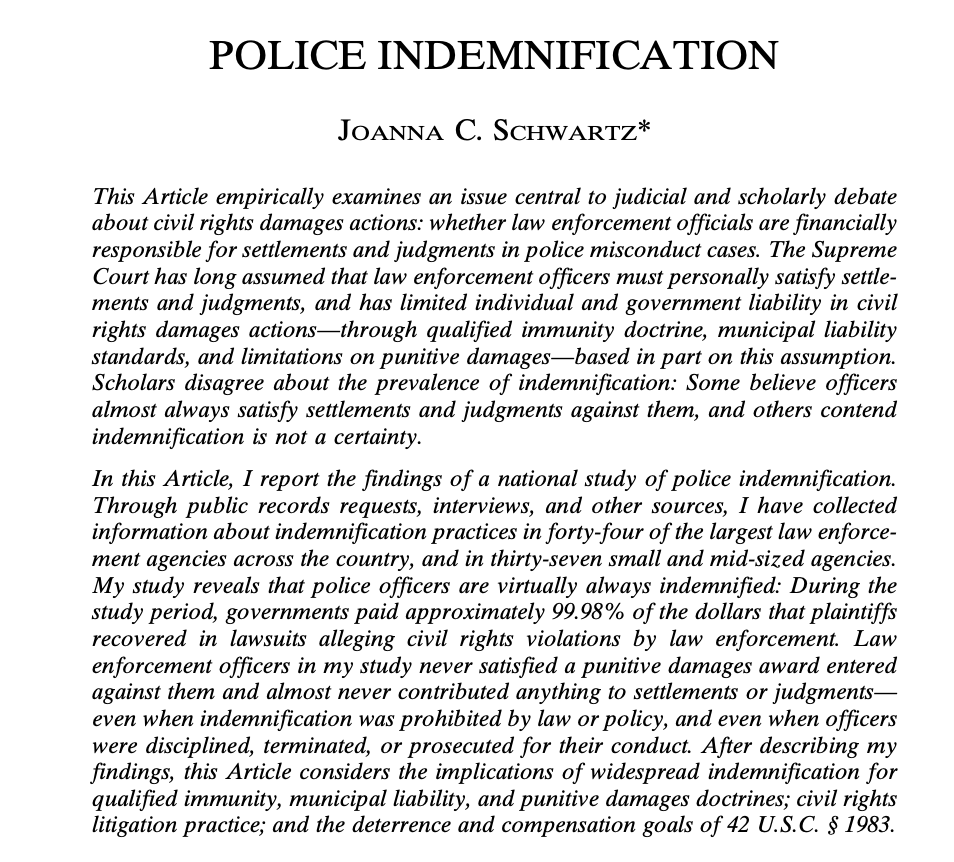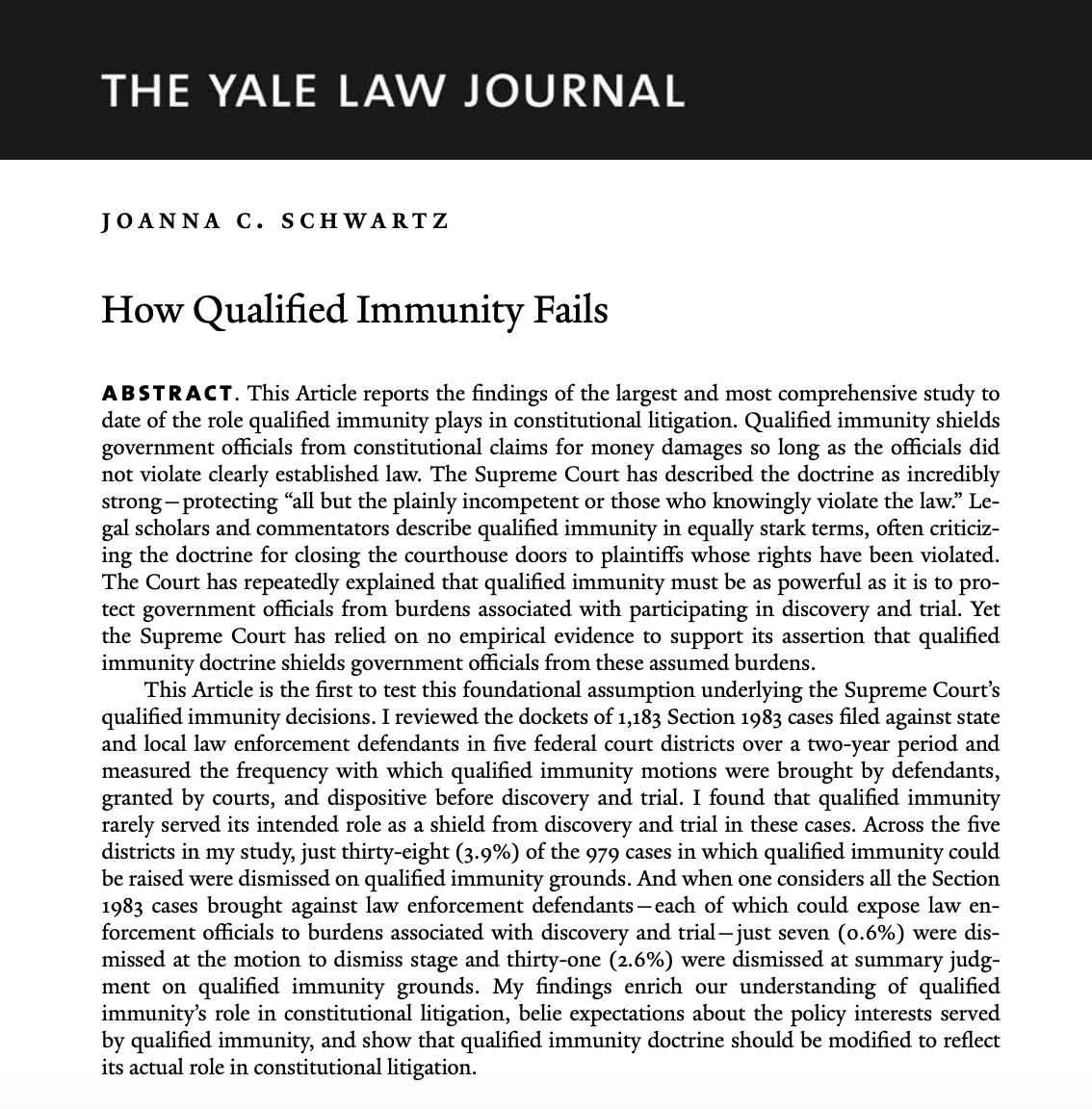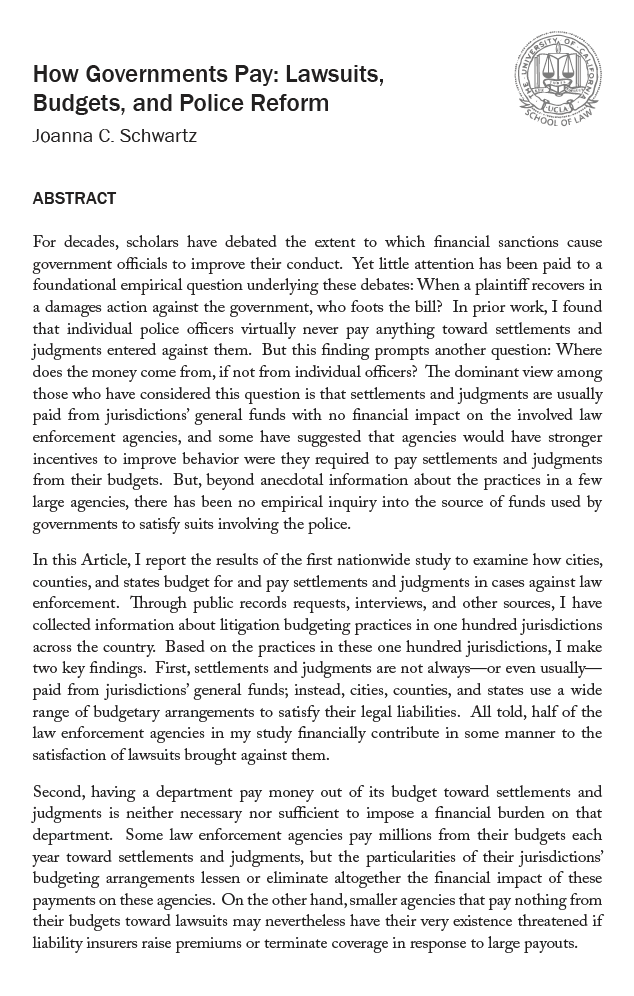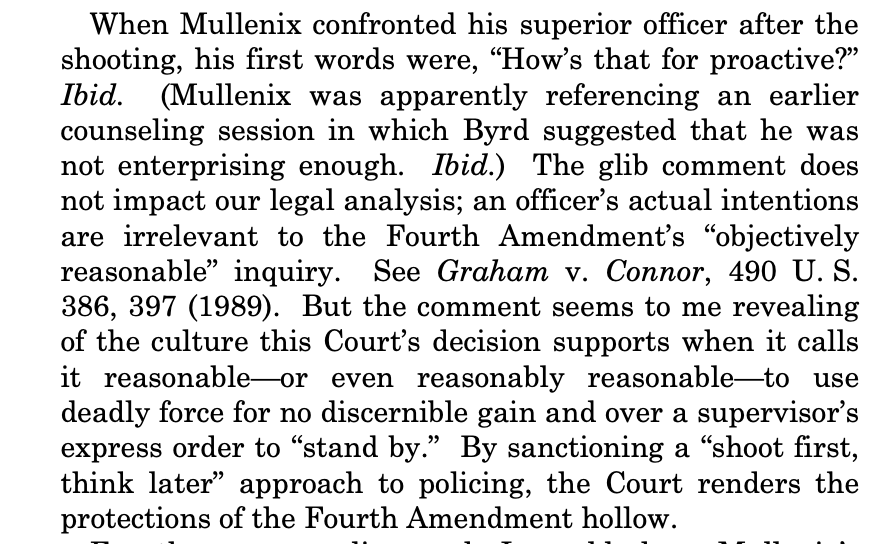
We don’t have specifics, but sounds like Republican Senator Tim Scott is proposing to end qualified immunity and make cities, not officers, liable. This is HUGE folks. Let me explain why. cnn.com/2021/04/21/pol…
Qualified immunity currently slams the courthouse doors against plaintiffs unless they can find a prior court case with virtually identical facts. It increases the costs and complexity of civil rights litigation. It obscures the contours of the Constitution. It is bad bad bad.
One of the justifications for qualified immunity is to shield officers from financial liability in civil rights cases. But QI isn’t necessary to serve this role because officers virtually never pay anything in settlements and judgments even when plaintiffs can overcome QI.
Officers’ bank accounts are protected not by qualified immunity, but by indemnification statutes and policies that require local governments to pay for attorneys for their officers and any settlements or judgments entered against them.
The thing is, indemnification statutes aren’t watertight - officers can be denied indemnification in some states it they acted “maliciously” or if punitive damages are awarded against them.
Government attorneys use the threat that they will deny officers indemnification strategically, to negotiate lower settlements, avoid punitive damages awards, or reduce jury verdicts after trial - only to indemnify officers in the end.
Sen. Tim Scott’s proposal - requiring the city to bear the costs of these suits, instead of officers - would make transparent what already happens in over 99% of cases, while avoiding strategic use of the threat indemnification might be denied.
Some may oppose Sen. Scott’s proposal because it means individual officers won’t be held accountable. We absolutely need to find ways to increase officer accountability - by, for example, changing union protections that make it difficult to fire bad officers.
We can also hold officers accountable for misconduct by imposing a limited financial sanction on them - as Colorado’s recently enacted statute does - requiring officers to pay 25,000 or 5% of a settlement, whichever is less, when they are found to have acted in bad faith.
But we should not push for accountability by making individual officers personally responsible for the entirety of damages awards. Derek Chauvin could never have paid the family of George Floyd the $27 million they were awarded.
Cities/counties hire the officers who violate the Constitution, and give them badges and guns. They should pay for the harms officers cause. We also need to hold officers accountable. Tim Scott’s proposal addresses the first concern. We can find other ways to address the second.
• • •
Missing some Tweet in this thread? You can try to
force a refresh






